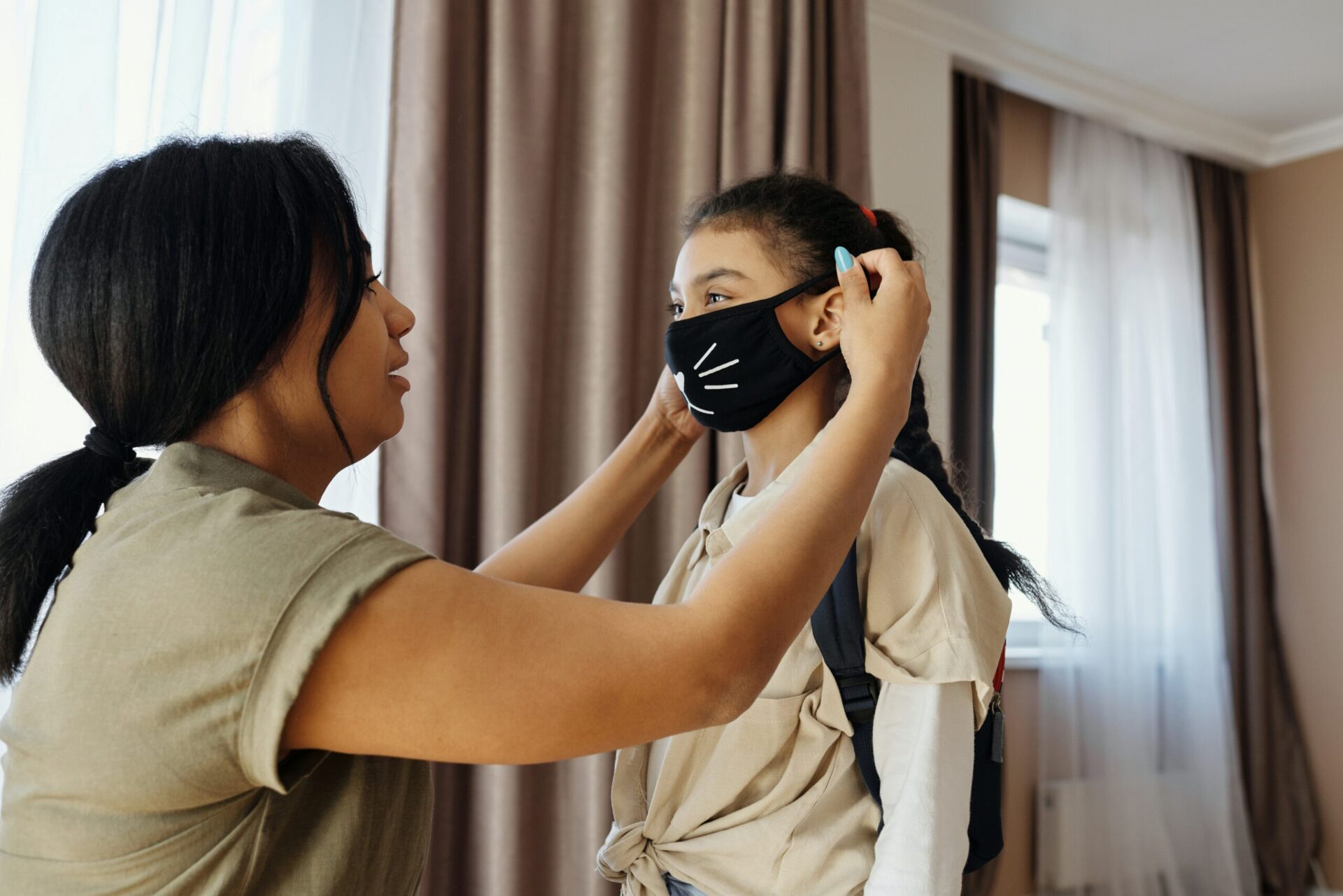The past two years have been a challenging time for all of us. We were forced to make significant changes in our lifestyle, something we had not seen before. People lost jobs and loved ones. We had to do most of our tasks indoors. Almost every home was shrouded in fear and hopelessness. The impact of the COVID-19 pandemic was not only devastating on adults but on children. It has affected families emotionally, socially, and academically.
Children may react differently to stress. It’s important to be aware of your child’s behavior before things go out of hand.
Here are some of the changes in your child to watch out for according to the Center for Disease Control (CDC):
- Crying excessively and irritability, especially in younger children
- Going back to outgrown behaviors such as bedwetting or toilet accidents
- Extreme sadness or worry
- Unusual eating and sleeping habits
- Acting out, especially in teens
- Poor performance in school, absenteeism
- Concentration problems and issues with attention
Children will look to their parents and adults for guidance whenever stressed out. According to the American Psychological Association, a survey by Lurie Children’s Hospital in Chicago revealed that 71% of parents said the pandemic has impacted their child’s mental health. In comparison, 69% have said that the pandemic was the worst thing to happen to their child. Mental health crises also appeared to have increased in 2020. From March to October, there was a 24% increase in emergency visits related to mental health concerns for children ages 5 to 11. A 31% increase was seen in teens ages 12 to 17.
How can you help your child cope with their mental health struggles due to the pandemic?
Here are some practical ways.
Have a Conversation with Them
Children may have a difficult time expressing themselves. Allow them to talk about what they are feeling. Be open and listen attentively. If you can, answer their questions truthfully.
Strengthen Your Relationship
Spend more time with them. Do meaningful activities together, like playing board games and reading. Reassure them that everything is going to be okay.
Practice a Daily Routine
Try to maintain a daily routine. This will foster normalcy and consistency for your child, and a practice they can follow will help them feel more secure and instill good behavior.
Consider Counseling
If things get out of hand, counseling is an excellent way to go about it. It can be a safe space for your child for them to express their thoughts freely and at the same time, learn valuable techniques to help them navigate through the whole experience.
Types of therapy for children include:
1. Play Therapy
This type of therapy allows the therapist to observe the child and gain insight into the issues they are trying to navigate. Play therapy will help the child express their unspoken emotions and concerns through play that they are unable to express through words.
2. Art Therapy
Art therapy is another recommended form of treatment for children and adolescents to help them have a creative expression to deal with their issues. The therapist guides the child/adolescent to create art to gain insights on how to better cope with their emotions.
3. Talk Therapy
Talk therapy is a common form of therapy where older children or adolescents are encouraged to both recognize and understand their thought patterns to help them develop a new perspective and put these changes into practice.
References:
Abramson, A. (2022, January 1). Children’s Mental Health is in Crisis. Apa.org. https://www.apa.org/monitor/2022/01/special-childrens-mental-health
Einhorn, E. (2020, December 15). An overwhelming toll: What America’s children have lost during the pandemic. NBC News. https://www.nbcnews.com/news/education/covid-having-devastating-impact-children-vaccine-won-t-fix-everything-n1251172
Kang, Y. Q., Lim, T. S. H., Ragen, E. S., Tan, M. Y., & Aishworiya, R. (2020). Managing Children’s Anxiety During COVID-19 Pandemic: Strategies for Providers and Caregivers. Frontiers in Psychiatry, 11. https://doi.org/10.3389/fpsyt.2020.552823
Child Therapy: 19 Counseling Techniques & Kids’ Activities. (2018, May 17). PositivePsychology.com. https://positivepsychology.com/child-therapy/#:~:text=Child%20therapy%20(also%20called%20child
Helping Children Cope With Changes Resulting From COVID-19. (n.d.). National Association of School Psychologists (NASP). https://www.nasponline.org/resources-and-publications/resources-and-podcasts/school-safety-and-crisis/health-crisis-resources/helping-children-cope-with-changes-resulting-from-covid-19.
_____________________________________________________
LEARN MORE HERE:
Adolescent Counseling | Therapy
Children Counseling | TherapyTopics addressed include:
– Adolescent therapy near me
– Play therapy near me
– Child therapist near me
– Adolescents therapists in Alexandria, VA
– Child counseling in Alexandria, VA
Please contact Lifeenrichmentcounseling.com to get support with stress, anxiety, and other mental health needs.
Life Enrichment Counseling Center, Inc., provides holistic counseling services for children, adolescents, adults, couples, and families. Adolescent Counseling and Therapy (Counselor | Therapists) – Children Counseling and Therapy (Counselor | Therapists) … Counseling Near Me – Therapist Near Me … serving Gainesville, Alexandria – in Northern Virginia and in Washington, DC and surrounding Areas.


